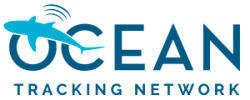(OTN) has been awarded a grant of $13.4 million from the тАЩs (CFI) Major Science Initiatives (MSI) Fund, bringing the total amount awarded to OTN from the Government of Canada to $27M. OTN is the only MSI-funded national research facility in Atlantic Canada.
The MSI Fund supports the unique operating and maintenance needs of CanadaтАЩs large, complex research facilities so that they can stay on the cutting edge and continue to serve communities of researchers in Canada and around the world. These facilities тАУ whether physical spaces or virtual networks тАУ serve a critical mass of researchers tackling some of the most important issues facing society.
 The funding announced today includes an investment of close to $228 million by the Government of Canada in 14 national research facilities at 10 different institutions across the country. ╠¤
The funding announced today includes an investment of close to $228 million by the Government of Canada in 14 national research facilities at 10 different institutions across the country. ╠¤
╠¤
Since 2008, OTN has been deploying state-of-the-art ocean monitoring equipment and marine autonomous vehicles (gliders) in key ocean locations and inland waters around the world to measure how the environment is changing, and is using electronic tagging systems to track the movements and survival of more than 245 keystone, commercially important and endangered species. Results from OTN researchers are used to inform conservation initiatives, sustainable fisheries management and policy development, to assist with environmental impact assessments, and to help monitor the health of the global ocean.
тАЬThis investment from CFI will allow OTN to continue serving its Canadian and international research communities - a network of 600 researchers and counting - who use OTN's infrastructure and data systems to track and analyze animal movements in the face of changing marine ecosystems,тАЭ says Dr. Sara Iverson, OTNтАЩs scientific director. тАЬThese international scale-collaborations are transforming aquatic species research into critical knowledge that is of benefit to Canada, as well as the world."
Continuing important work
Using new protocols to operate safely under the constraints imposed by the COVID-19 pandemic, OTN headquarters personnel have worked assiduously to support the networkтАЩs scientific communities by providing data services and by maintaining the operations of OTN infrastructure. This has allowed the important work of OTN collaborators to continueтАФand even increaseтАФduring a time when researchers are working remotely on data analyses.
During the COVID-19 pandemic, operations with the Coastal Environmental Observation Technology and Research (CEOTR) groupтАЩs autonomous underwater vehicles (AUVs, a.k.a. Slocum gliders and Wave Gliders) and remotely operated vehicles (ROVs) continued in support of essential training, monitoring and researchтАФSlocum gliders were prepared and will soon be deployed for missions in the Gulf of St. Lawrence to assist principal investigators with protecting endangered North Atlantic right whales from ongoing shipping and fishing activities.
CEOTRтАЩs Wave Glider was readied to service the Halifax Line тАФ OTNтАЩs largest tracking array тАФ and other sites where tracking stations are established, to ensure the infrastructure remained operational and to retrieve critical animal movement data.
тАЬThis significant investment by the Government of Canada is recognition of the outstanding research happening at the Ocean Tracking Network,тАЭ says Alice Aiken, vice-president of research and innovation at ╗╞╔л╓▒▓е. тАЬOTN continues to lead the way in a rapidly-evolving ocean technology sector. Its work has changed our understanding of the natural world and is making a vital contribution to better management of the worldтАЩs aquatic resources.тАЭ
With the funding announced today, OTN will be able to:
- Continue to maintain infrastructure and operations
- Continue to meet the growing demands of its Canadian and international user communities
- Allow communication of data and outcomes in support of Canadian and international science and stewardship of global aquatic resources
- Support Canadian marine technology companies that manufacture equipment for OTN
A full list of the funded projects and stories about the facilities are available online at
╠¤

